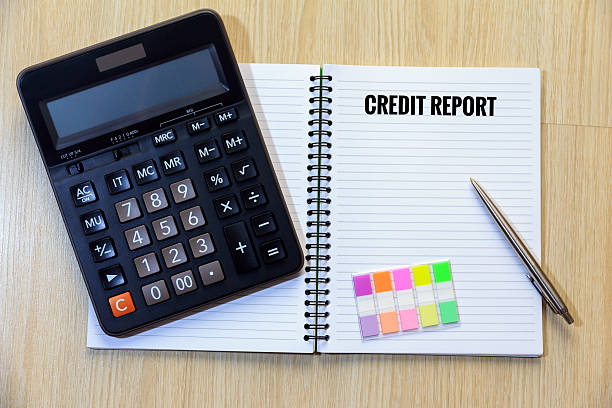You are now leaving the Bright website and entering a third-party website. Bright has no control over the content, products, or services offered, nor the security or privacy of information transmitted to others via their website. We recommend that you review the privacy policy of the site you are entering. Bright does not guarantee or endorse the products, information, or recommendations provided on any third-party website.
Credit cards play a pivotal role in shaping an individual's credit history and, consequently, their overall financial health. One crucial aspect of this relationship between credit cards and credit scores is the reporting to credit bureaus. Knowing when credit cards report to bureaus is essential for individuals seeking to maintain or improve their creditworthiness. According to a report, credit card companies charged consumers more than $105 billion in interest and more than $25 billion in annual fees.
But before we get into the topic, it is recommended that you read about how to improve your credit score with Bright Money!
This comprehensive article will delve into the intricacies of the reporting cycle, exploring the factors that influence reporting dates, the frequency of reporting, and the impact on credit scores.
The Basics of Credit Reporting
Credit reporting is a process by which financial institutions share information about their customers' credit activities with credit bureaus. These credit bureaus, or credit reporting agencies, collect and maintain this data to generate credit reports and calculate credit scores. The primary credit bureaus in the United States are Equifax, Experian, and TransUnion.
When Do Credit Cards Report to Bureaus?
Credit cards typically report to credit bureaus around the statement closing date once a month, but the specific reporting day varies by issuer.
Monthly Reporting Cycle:
Credit card issuers follow a standard practice of transmitting their customers' account information to the credit bureaus every month. However, the specific day of the month when this reporting occurs isn't standardized across all issuers. Each credit card company sets its reporting date, a key piece of information directly influencing the data showcased on an individual's credit reports.
Statement Closing Date:
The statement closing date holds substantial weight in the credit reporting process. This date marks the conclusion of a billing cycle for a credit card account. Credit card companies typically report an individual's credit card balance to the credit bureaus as of the statement closing date. Consequently, this reported balance becomes the foundation for calculating the credit utilization ratio—a critical factor in credit scoring models.
Reporting Time Lag:
While the statement closing date is a significant reference point for reporting, there can be a delay or time lag between when the credit card issuer concludes a statement and when they transmit this information to the credit bureaus. This reporting delay can fluctuate, varying from a few days to potentially stretching out over several weeks. Understanding and acknowledging this lag in reporting is pivotal for consumers actively managing their credit.
The awareness of this reporting time lag is particularly important when considering credit utilization and payment behaviors. It underscores that even if a cardholder pays off their balance before the statement closing date to lower the reported balance, there might still be a gap before this updated information reflects on their credit report.
Factors Influencing Reporting Dates
Several factors influence the reporting dates of credit card information to credit bureaus, determining when the data from credit card issuers is transmitted and reflected in an individual's credit report. Understanding these factors is key to managing credit effectively and strategically. Here are some pivotal elements that influence reporting dates:
1. Card Issuer Policies:
Different credit card companies have varying policies and practices regarding when they report their customers' account information to credit bureaus. These policies can dictate the frequency and timing of reporting. Some issuers report on specific monthly dates, while others might have more flexible reporting schedules.
Example: Company A may report account information to credit bureaus on the 5th of each month, while Company B may do so every 15th.
2. Statement Closing Date:
The statement's closing date directly influences the timing of reported information. Credit card companies commonly report the account balance to credit bureaus as of the statement closing date. The date of this closure may vary among card issuers and sometimes can be chosen by cardholders, affecting the reporting cycle.
Example: If your statement closes on the 25th of every month, the balance will be reported to credit bureaus as of that date.
3. Reporting Timeframes:
There can be a timeframe or lag between the statement closing date and when the credit card issuer transmits the updated information to the credit bureaus. This timeframe can fluctuate, ranging from a few days to several weeks, depending on the issuer's internal processes and systems.
Example: Even though your statement closes on the 25th, your credit card company might not report to the bureaus until the 3rd of the month.
4. Billing Cycle Variations:
Credit card billing cycles differ among issuers and even among cards from the same issuer. The billing cycle length can impact the statement closing date and subsequently affect when the information is reported to credit bureaus.
Example: Card X might have a billing cycle from the 1st to the 30th, while Card Y from the same issuer has a cycle from the 15th to the 15th of the next month. This affects when the statement closes and when data is reported.
5. System Processing Time:
The internal processing time within credit card companies plays a role in the reporting cycle. After the statement closes, there might be administrative processes or reviews before the information is forwarded to credit bureaus, contributing to potential delays in reporting.
Example: After your statement closes, the credit card company may take 3-5 business days to process and verify the information before sending it to credit bureaus.
Why Do Reporting Dates Matter?
Understanding why reporting dates matter in the context of credit card usage is crucial for individuals aiming to maintain a healthy credit profile and improve their financial well-being. Several significant reasons underscore the importance of these reporting dates:
1. Impact on Credit Utilization Ratio:
The credit utilization ratio, the proportion of credit card balances to credit limits, heavily influences credit scores. Reporting dates coincide with the balance reported to credit bureaus, impacting this ratio. A low utilization ratio, ideally below 30%, positively affects credit scores. Timely payments to lower reported balances before the statement closing date can improve this ratio.
2. Influence on Credit Scores:
Credit scores, a numerical representation of an individual's creditworthiness, are greatly affected by reported credit card information. Payment history, credit utilization, and other factors reported to credit bureaus contribute to credit scores. Timely payments and strategic management of reported balances directly influence credit scores.
3. Timeliness of Payments:
Knowing the reporting dates allows individuals to ensure timely payments before the information is transmitted to credit bureaus. Late or missed payments reported to credit bureaus negatively impact credit scores and can stay on credit reports for several years, affecting future credit opportunities.
4. Opportunities for Credit Limit Increases:
Credit card companies often review credit cardholder accounts for potential credit limit increases. Responsible credit usage and timely payments reported to credit bureaus positively influence these decisions. Understanding reporting dates enables individuals to showcase good credit behavior for potential limit increases.
5. Loan and Credit Applications:
When applying for loans, mortgages, or new credit cards, lenders assess credit reports and scores to make decisions. Reported credit information influences these assessments. Accurate and positive reporting, achieved by managing reporting dates effectively, can result in better loan terms and approval chances.

Conclusion
Understanding when credit cards report to bureaus is fundamental to maintaining a healthy credit profile. By grasping the nuances of the reporting cycle, individuals can make informed decisions about their credit usage, payments, and overall financial strategy.
Regular monitoring of credit reports, knowledge of card issuer policies, and strategic planning of credit card payments are crucial elements in the ongoing effort to build and sustain good credit. As financial landscapes evolve, staying well-informed about credit reporting practices remains essential to personal financial management.
Transform your finances with Bright Money's powerful tools like Bright Credit and Bright Builder! Take control of your finances by downloading the Bright Money app.
Recommended Reads
How to check your credit score
5 mistakes to avoid while building credit
FAQs
1. How can I find my credit card's specific reporting date?
Contact your credit card issuer's customer service or check your credit card statement. The reporting date might be mentioned there. Alternatively, logging into your online account or checking the terms and conditions of your card might provide this information.
2. Do all credit card companies report on the same day each month?
No, reporting dates vary among credit card companies. Each issuer establishes its reporting schedule, so the specific day of the month when information is transmitted to credit bureaus can differ.
3. Can I change the closing date of my credit card statement?
Some credit card issuers allow cardholders to change their statement closing date. Contact your issuer's customer service to inquire about the possibility and process for altering your statement closing date.



